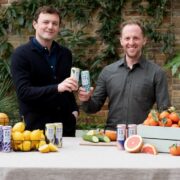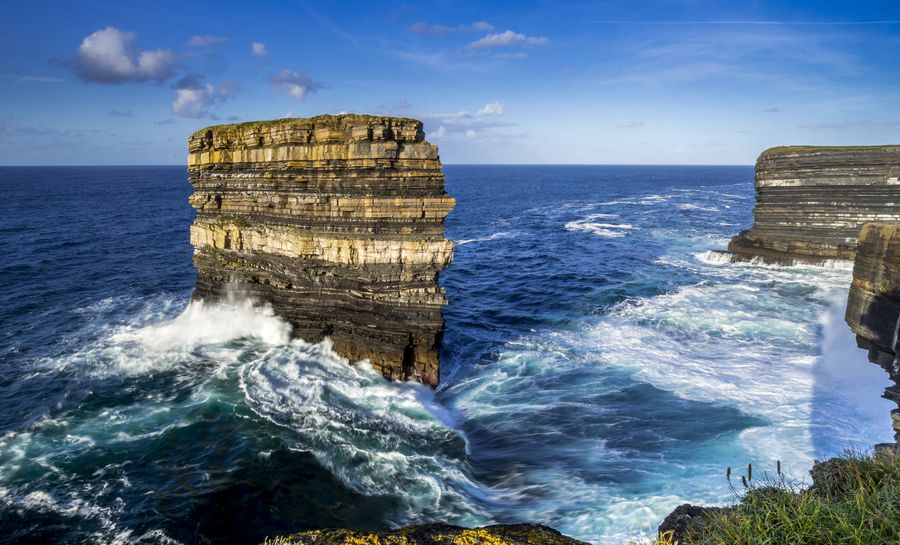Biotech firm Ovagen has created technology that addresses a major issue in vaccine production, which sees 20% of egg-based vaccines being destroyed due to contamination.
The world’s first producer of germ-free eggs Ovagen has raised €1.1m in an oversubscribed funding round led by HBAN (Halo Business Angel Network) syndicates Irrus Investments and WxNW.
Ovagen’s ground-breaking proprietary process is a world-first and addresses a problem that sees up to 20% of egg-based vaccine batches being destroyed. Due to the significance of its product, Ovagen expects to add 65 jobs over the next five years, with revenues reaching €42m by year-end 2027.
“Our investors’ support, along with the tireless dedication of the Ovagen team, puts us in a very strong position as we prepare to go to market with the world’s first germ-free egg”
Every year, in excess of 1bn eggs are used globally as ‘bio-reactors’ to support the development of life-saving human and animal health vaccines. Viruses are injected into the eggs to propagate the virus, which vaccine manufacturers can then use to develop vaccines for diseases including the flu, yellow fever, mumps and measles. However, currently, one-in-five eggs become contaminated, leaving the vaccines they create unfit for use. It is a multi-million-euro problem for the world’s vaccine manufacturing industry.
Germ-free eggs
Following seven years of research and development, Ovagen has now addressed this issue with its superior quality-verified ‘germ-free’ eggs, produced in the company’s Ballina, Co. Mayo, headquarters. The process and technology – which is protected by patents and trade secrets – ensures no bacteria can enter an egg through its porous shell after it is laid.
“Currently, vaccines are developed using Specific Pathogen Free (SPF) eggs,” said Dr Catherine Caulfield, co-founder and CEO of Ovagen.
“While these are free of many bacteria and viruses, they are not germ-free and a significant proportion become contaminated with bacteria.
“Our funders have been instrumental in supporting us on our long journey to make a concept a reality. At critical stages in our development, our angel investors have not only provided us with their financial backing, but they have also introduced us to other potential investors, as well as their highly influential industry contacts. Their support, along with the tireless dedication of the Ovagen team, puts us in a very strong position as we prepare to go to market with the world’s first germ-free egg.”
The latest funding brings the total amount received by Ovagen to-date to more than €19m. It will be used to carry out R&D evaluation trials on vaccine batches, to officially launch the world’s first germ-free eggs, targeting major world drug manufacturers and the appointment of key additional personnel.
The company will also seek to prove that its germ-free eggs give a higher viral yield, which the founders believe can significantly reduce the large number of eggs required to produce vaccines – and with it, the costs and logistical issues of transporting those eggs.
“The Ovagen team has shown incredible perseverance in pursuit of an idea that many deemed was impossible,” said Declan MacFadden, spokesperson for HBAN’s WxNW syndicate.
“The global potential of the company’s technology is vast and that is why this is the second time HBAN syndicates have backed Ovagen. Our investors were also impressed by the unwavering ambition and track record of the founders, who previously sold a company for €25m, giving some early investors a 68X return on their investments.”
Ovagen expects that from its site in Ballina, it will be producing four million eggs annually by 2027, with revenues reaching €42M by the end of that year. This will be supported by increasing the team to 77, up from 12, over the next five years. The company also has plans to build three additional facilities in Ballina, as well as establishing global satellite facilities close to drug manufacturing sites.
“The WDC is a long-term investor of Ovagen,” said Allan Mulrooney, interim CEO of the Western Development Commission. “The company has continued to grow and innovate to create a world class, economically sustainable product.
“This round of Investment supported by WDC will enable Ovagen to expand their market and create up to 77 high level roles from its base in Ballina, Mayo. This investment underlines the importance of supporting innovation driven enterprises, leading the success of the existing biotechnology ecosystem in Ireland’s western region. This is a great example of a local company operating on a global scale.”
Main image at top: Dr Martin Murphy, project director; Dr Catherine Caulfield, co-founder and CEO; and Dr Leonard Moran, co-founder and chair, Ovagen




